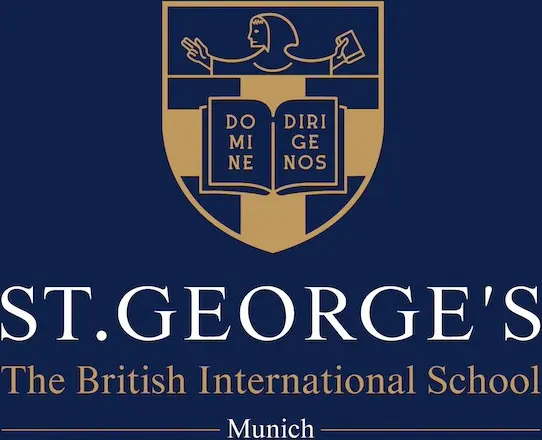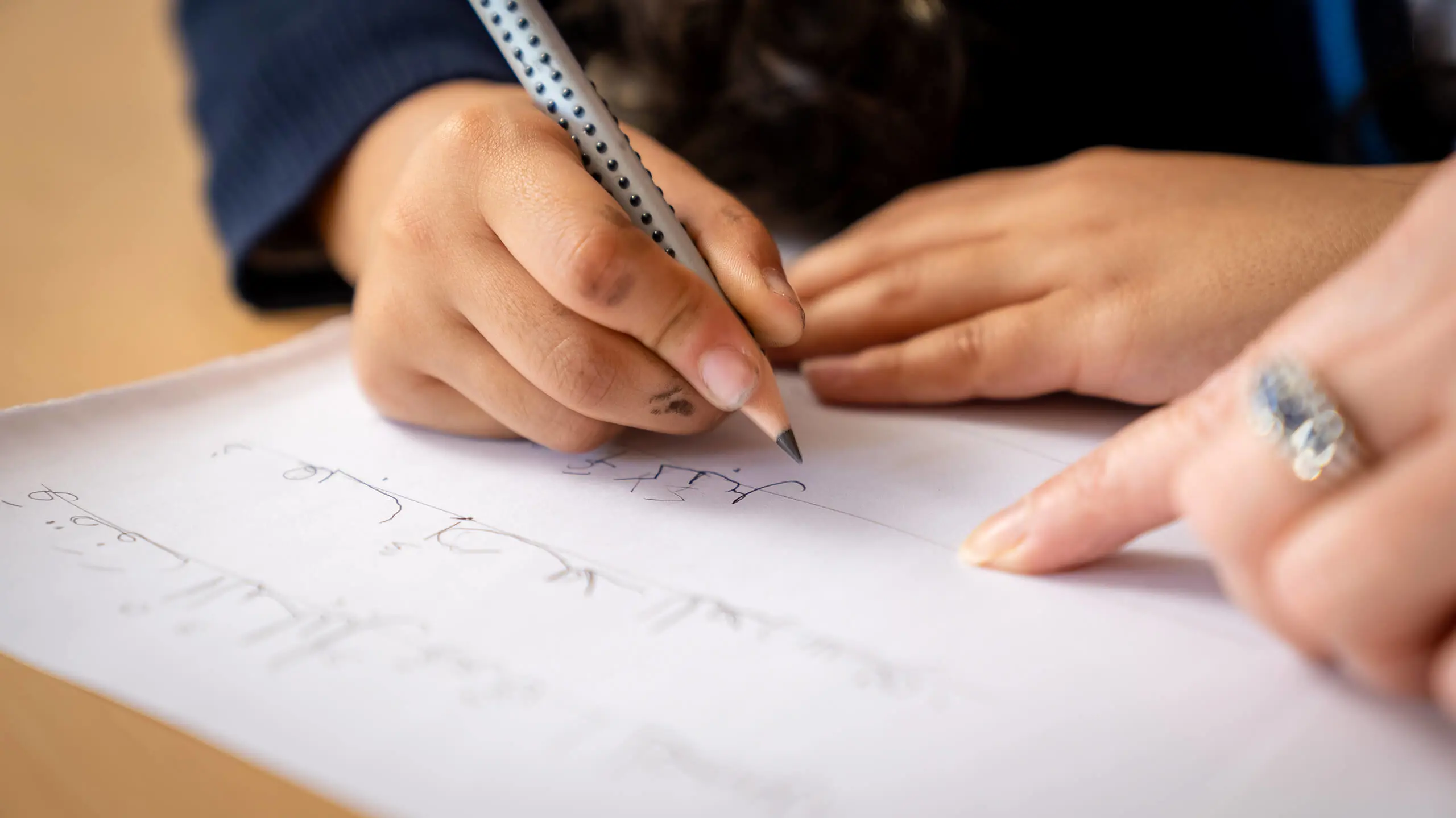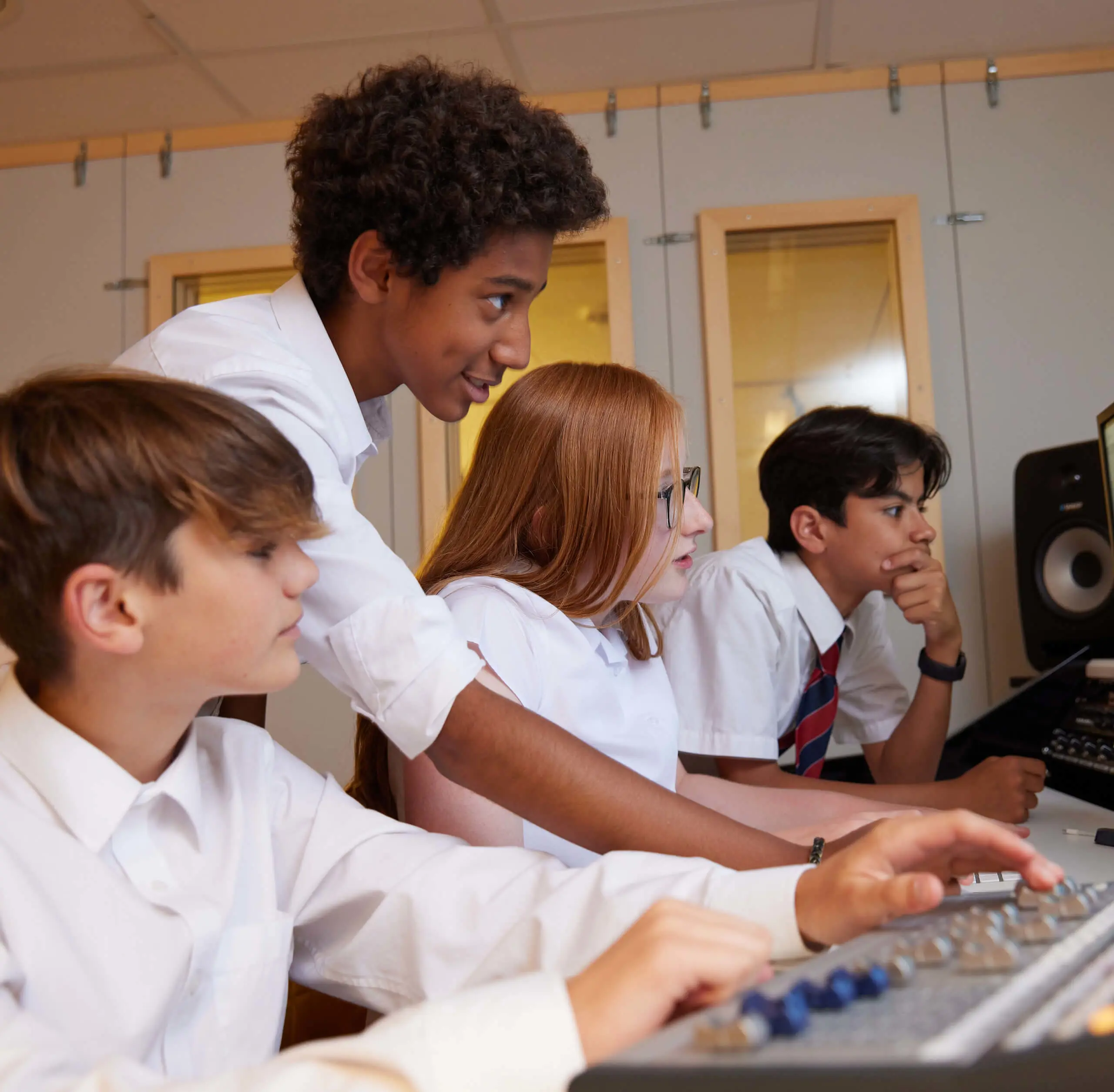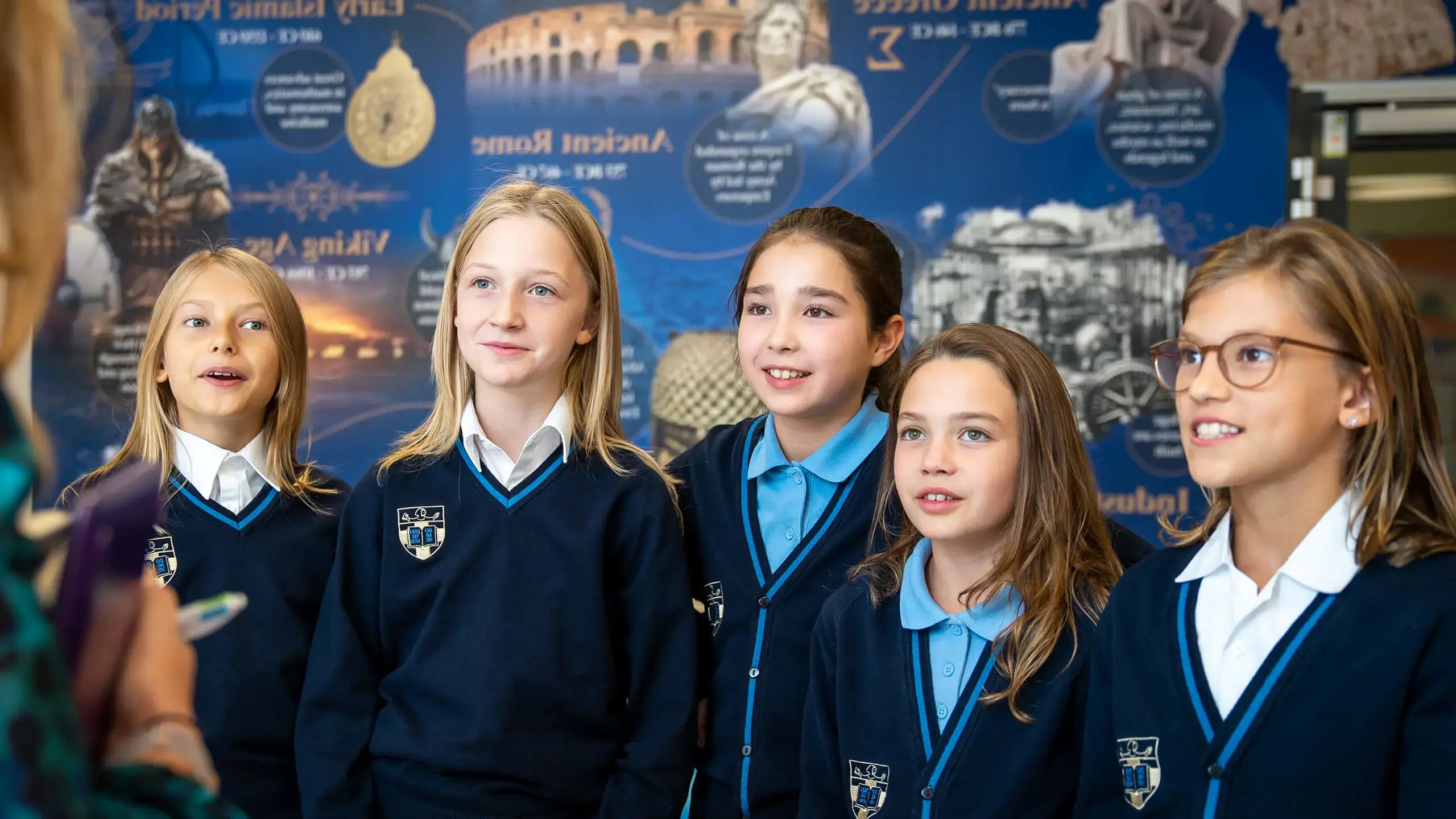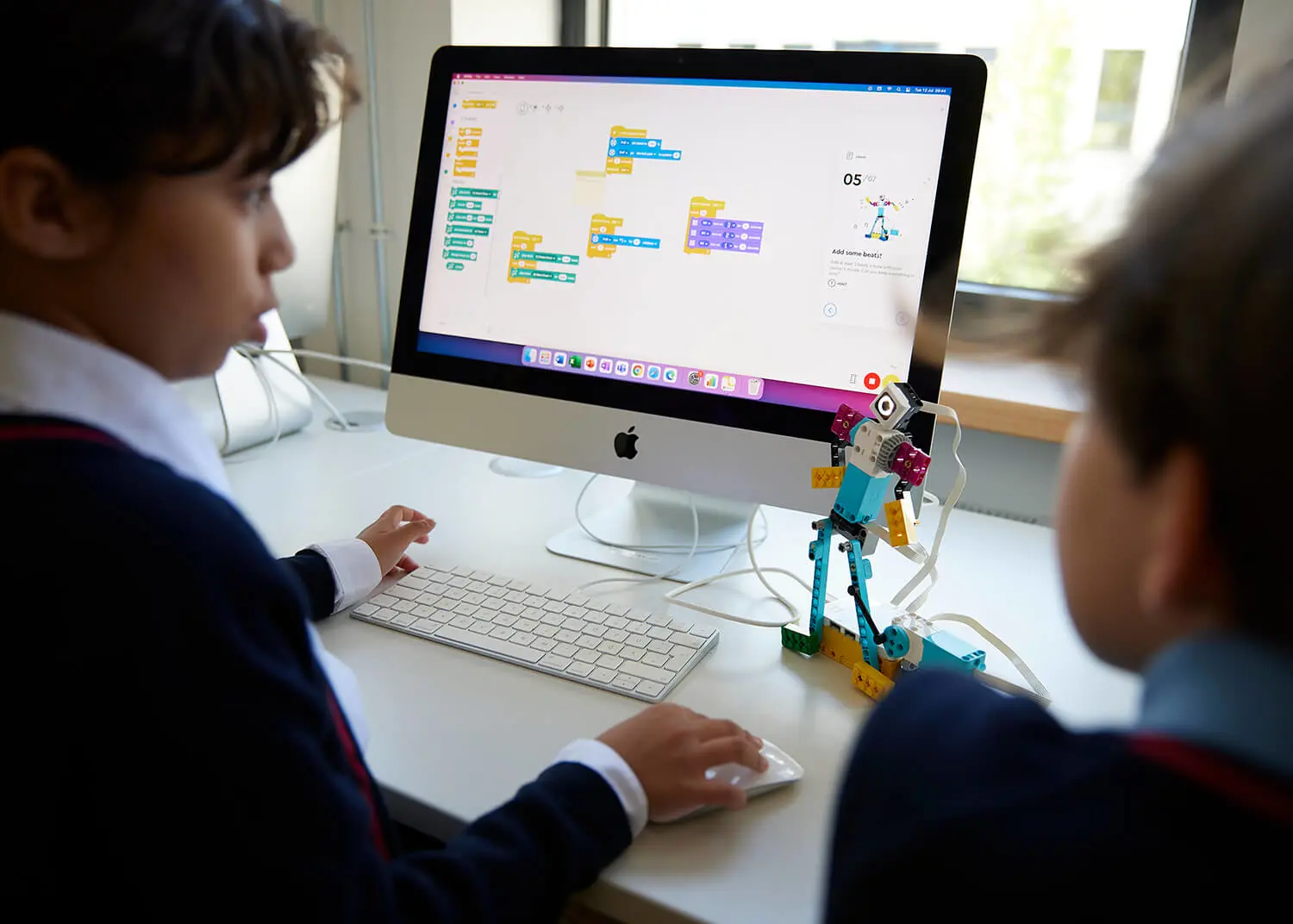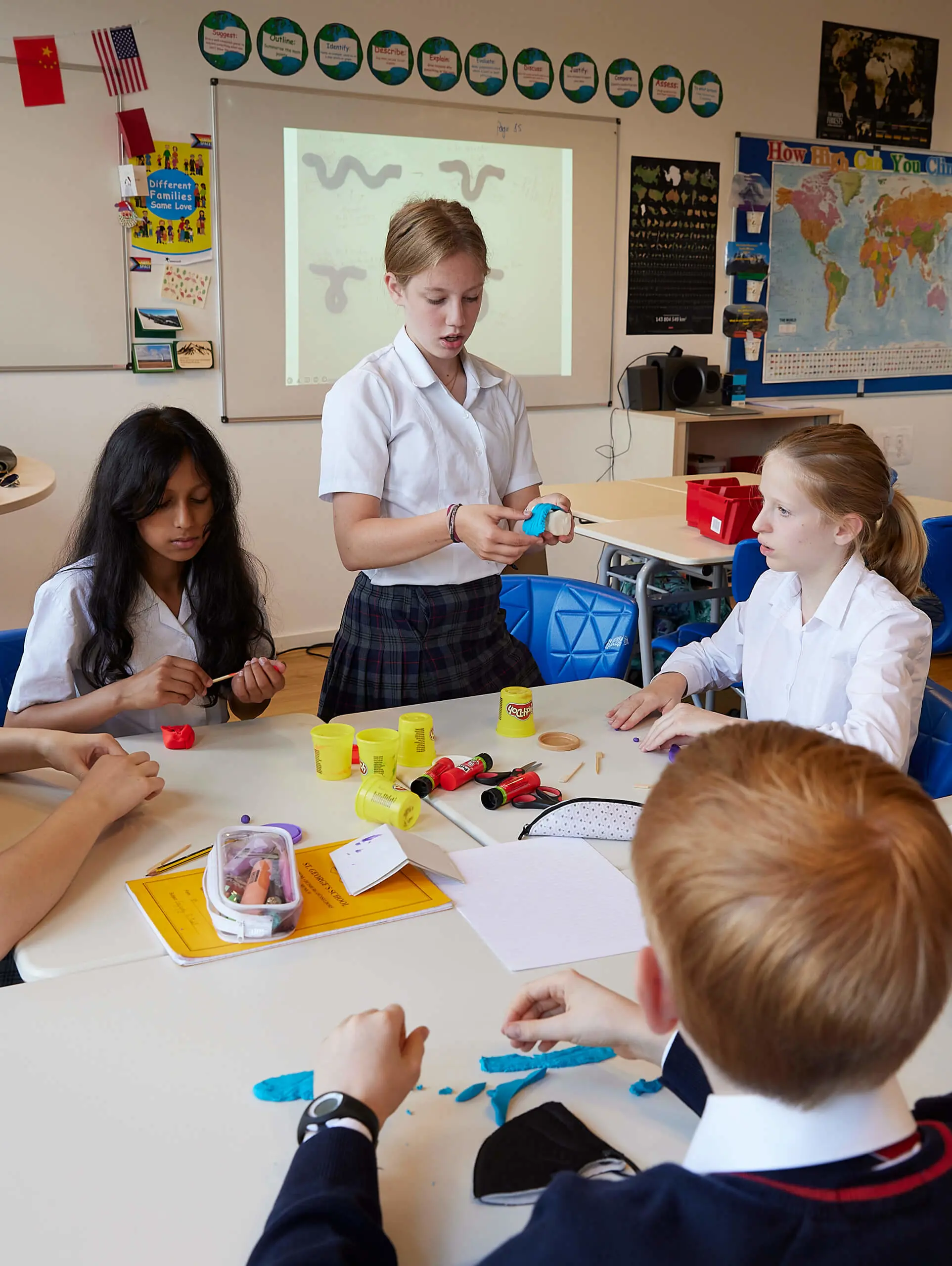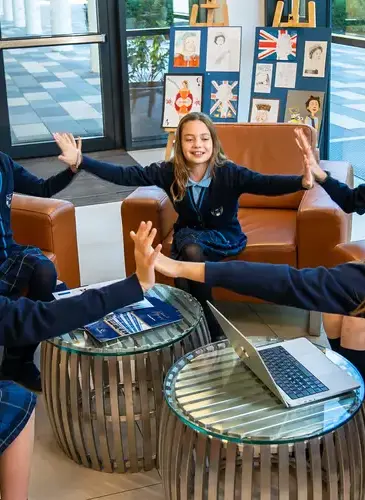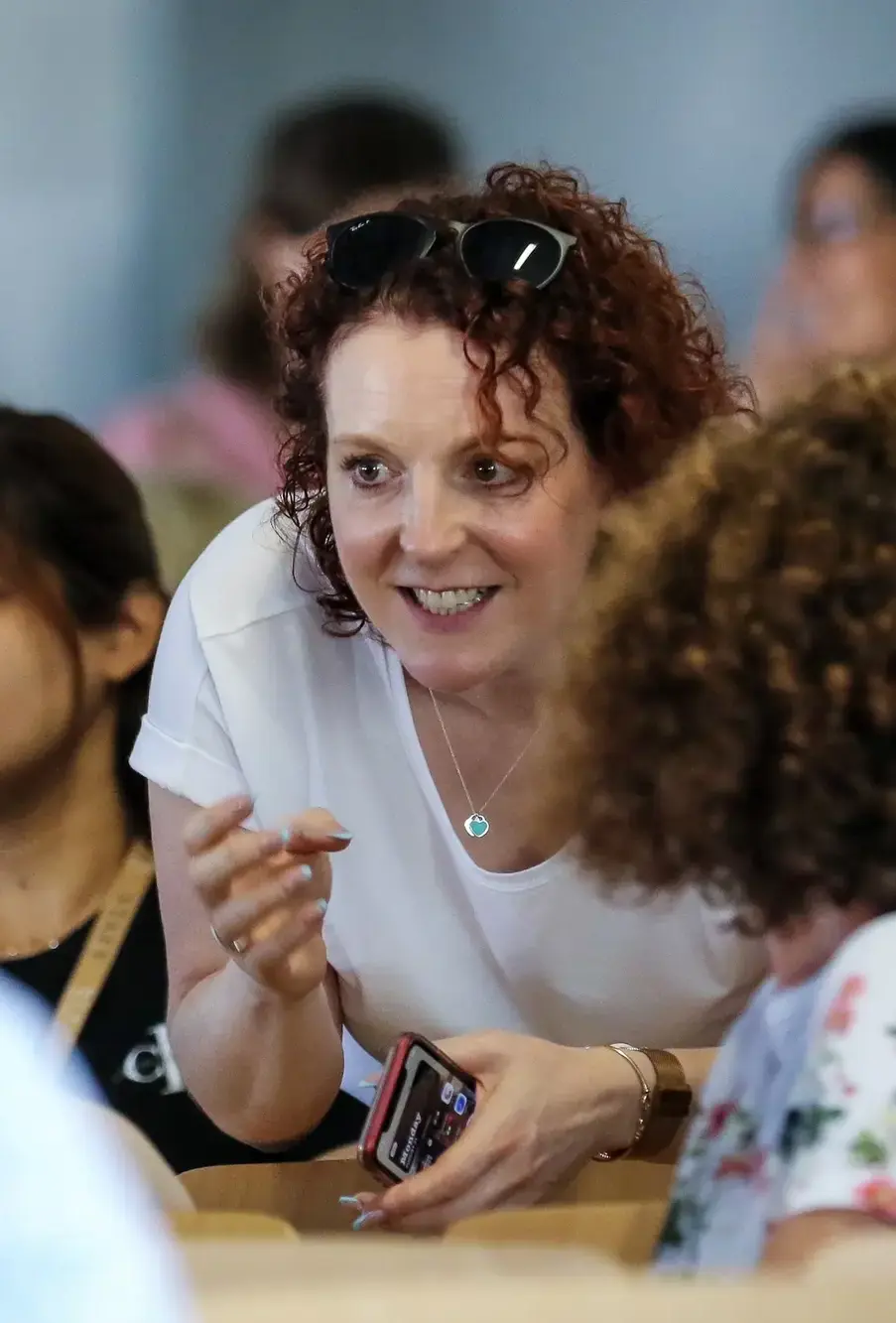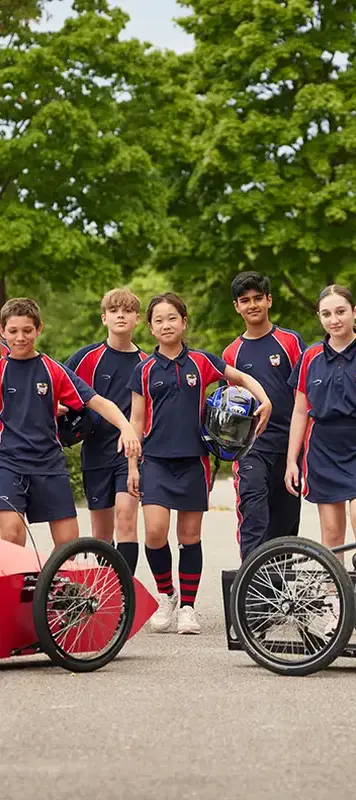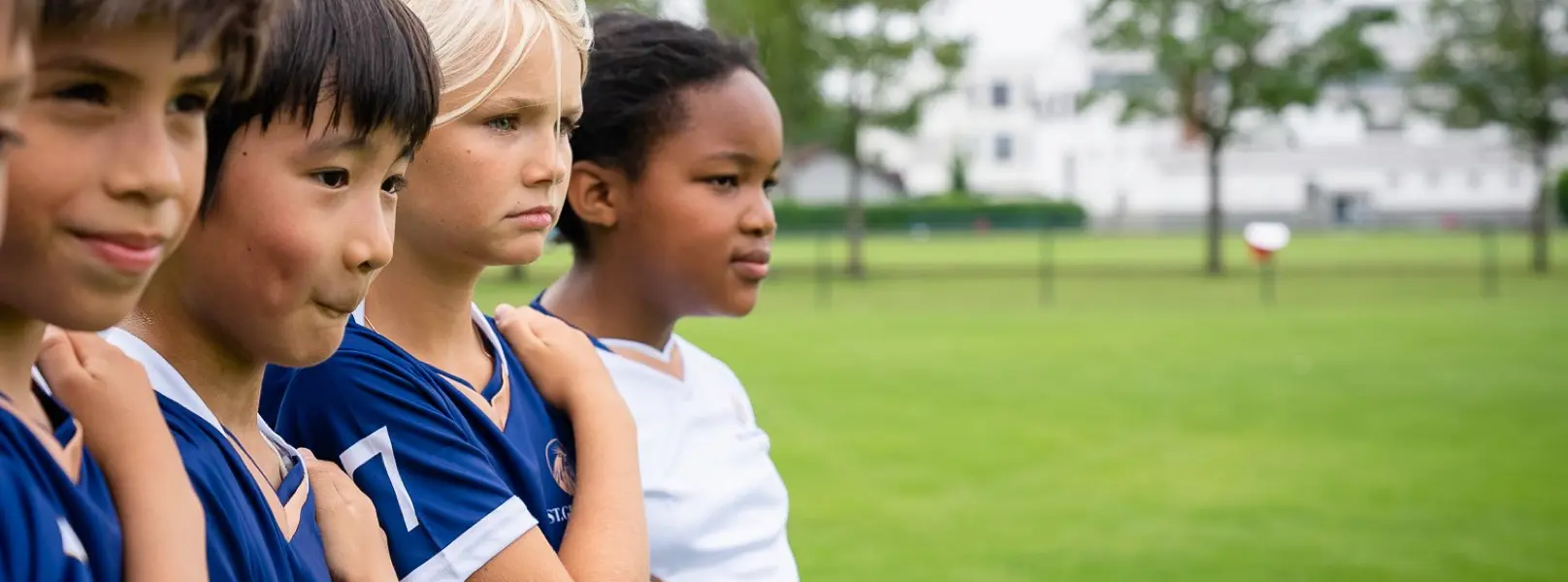Laying strong foundations.
The National Curriculum for England in Upper Primary aims to prepare students for future academic success and personal growth by promoting critical thinking, creativity, communication skills, and a love for lifelong learning.
In the Upper Primary, students embark on a demanding curriculum, guided and supported by their teachers and Head of Section. Emphasis is placed on effective teaching and learning to ensure that each student reaches their full potential and achieves age-appropriate benchmarks. This phase also introduces opportunities for student leadership, where students plan and lead assemblies, speak in public settings and gain leadership skills, confidence, and self-esteem. While our curriculum is rooted in the National Curriculum for England, we tailor topics to reflect our school's location and ensure that learning resonates with students from various cultural and ethnic backgrounds.
Curriculum
In the Upper Primary, we follow the National Curriculum for England, which provides a comprehensive framework for academic development across various subjects. Through a structured and engaging approach, students build a strong foundation in core subjects while also exploring a range of disciplines to foster a well-rounded education.
Our curriculum encourages the development of critical thinking skills across subjects such as English, Mathematics, Science, History, and Geography. Students are encouraged to ask questions, analyse information, evaluate evidence, and construct reasoned arguments.
Classroom activities such as debates, discussions, and group work provide opportunities for students to express their opinions, listen to others, and engage in reasoned dialogue. This fosters communication skills, critical reflection, and respectful exchange of ideas.
| English |
|---|
|
All subjects, with the exception of German, are instructed in English, aligning with our goal to cultivate excellent language and literacy skills by empowering students with proficient oral and written communication. Our focus is on fostering a passion for literature through extensive reading for pleasure and knowledge acquisition. Students who are learning English as an additional language receive customised support either within the classroom or through specialised programmes designed to meet their specific needs. |
| Mathematics |
|
Our mathematics curriculum is designed to help all students achieve fluency in fundamental mathematical concepts. This stage lays the groundwork for a solid understanding and practical application of mathematics. Through exploration, discussion, and ongoing assessment, students learn to tackle problems by applying their mathematical skills and knowledge. |
| Science |
|
Aligned with contemporary standards and the expanding landscape of scientific industries, our science curriculum is designed to foster the development of scientific knowledge and conceptual understanding among all students. This is achieved through a blend of hands-on practical investigations and the acquisition of theoretical knowledge, ensuring a comprehensive and holistic approach to learning science. In science lessons, students engage in scientific inquiry, experimentation, and exploration of natural phenomena. They learn to ask scientific questions, gather evidence, and draw conclusions based on empirical evidence, aligning with principles of critical inquiry and reasoning. |
| German |
|
We customise our approach to German lessons by grouping children based on their proficiency in the language. Fluent speakers follow the local German curriculum, ensuring they are appropriately challenged. For learners of German as a foreign language, we provide lessons that consider their age and skill levels, promoting effective and targeted learning experiences. |
Further subjects
Each of the further subjects in the National Curriculum for England plays a unique role in fostering holistic development and providing a well-rounded education for students in Upper Primary. All subjects contribute to students' academic, social, emotional, physical, and moral growth, preparing them for future success and responsible citizenship.
- Art and Design encourages creativity, self-expression, and visual literacy skills through exploring various artistic techniques, materials, and concepts.
- Technology develops problem-solving abilities, critical thinking, and practical skills, designing and creating products using technological tools and processes.
- Computing promotes computational thinking, digital literacy, and proficiency, using technology for communication, collaboration, and problem-solving.
- Geography cultivates an understanding of the world's physical and human geography, environmental awareness, and spatial thinking skills.
- History fosters an appreciation for the past, historical thinking, research skills, and understanding of key historical events, figures, and themes. Geography and History lessons often explore global issues, cultural diversity, and historical events from multiple perspectives. This encourages students to consider different viewpoints, appreciate cultural differences, and develop empathy and understanding.
- Music encourages audio creativity, appreciation for different genres and styles, development of musical skills, and teamwork through ensemble performances.
- Physical Education promotes physical fitness, motor skills, sportsmanship, teamwork, leadership, and an understanding of the importance of a healthy and active lifestyle.
- Personal Social Health Education (PSHE) supports students' social and emotional development, builds resilience, teaches life skills, promotes positive relationships, and addresses important topics such as well-being, relationships, and personal safety. It encourages understanding and respect for different beliefs and cultures, fostering reflection on questions of meaning and purpose. Topics related to ethics, morals, and values are as well explored through various cross-curricular activities. These discussions promote reflection, empathy, and understanding of diverse perspectives.
Homework
As a full-day school, we recognise the importance of allowing children time after school to pursue other interests. It's essential for young individuals to have personal time for activities that enhance their skills or contribute to their overall wellbeing. Even at a young age, maintaining a healthy balance between schoolwork and other pursuits is crucial. Therefore, we adopt a moderate approach to homework.
In addition to regular reading practice, homework tasks are assigned when necessary and are targeted towards specific goals for each student, typically not exceeding three short activities per week. For families seeking additional practice at home, our teachers are always available to provide suitable activities and guidance upon request.
Assessment
We take a comprehensive approach to assessment, considering all types of evaluations when providing feedback to parents and making professional recommendations related to academic matters. The class teacher conducts continuous formative assessments, which provide ongoing insights into each student's progress. The information from these assessments is crucial in guiding teachers on how to effectively support each student's academic journey.
Parents are regularly informed about their child's progress throughout the school year, and have the opportunity to meet formally with teachers during scheduled parents' evenings to discuss their child's progress, address any concerns, and collaborate on strategies for further success.
St.George's
unique education model
As an educational organisation we are pioneering in four key areas which are the pillars supporting our work as educators and employers, and informing our wider economic, social, and environmental responsibilities.
